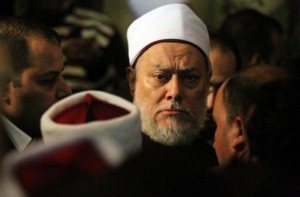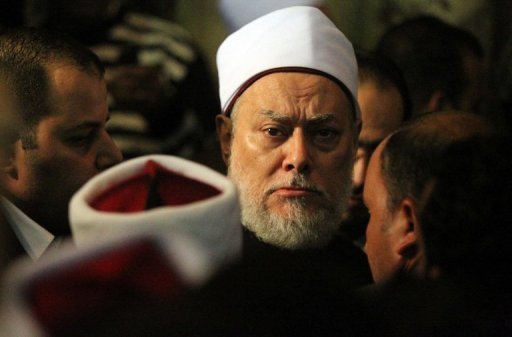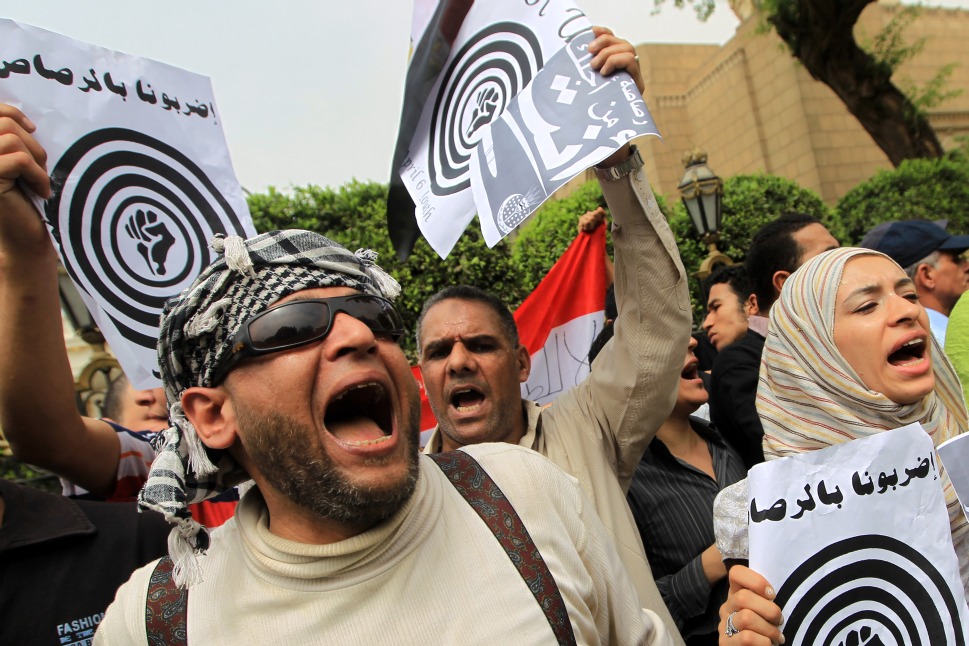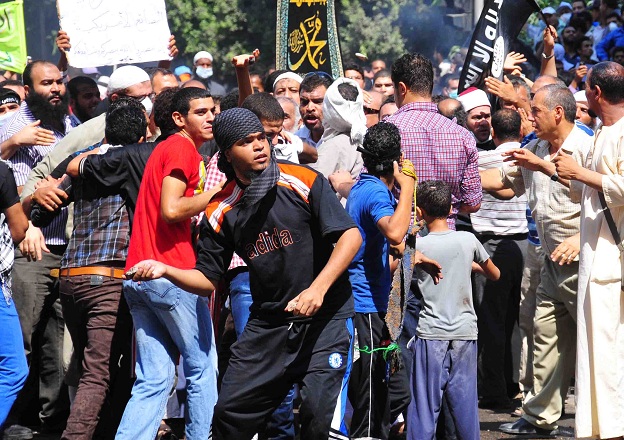
AFP PHOTO
Grand Mufti Ali Gomaa told the United Nations there are underlying factors that contributed to the violence by religious protestors directed recently at US embassies and consulates. “The current crisis has been precipitated by numerous factors; there is no one single cause to which we can point,” said Gomaa.
“Rather, one must keep in mind the many points of conflict and tensions between the Muslim world and the west today: grave violations associated with the war in Iraq, regular drone attacks in Afghanistan and Pakistan, and the conflict that has persisted for decades in Palestine. More recently we have witnessed attempts to marginalise Muslims in Europe by banning headscarves, minarets and other religious symbols, while far-right European political parties consistently demonise their Muslim populations, casting them as unwelcome intrusions.”
Gomaa was interviewed by the UN Alliance of Civilizations in the wake of violent protests that were set off by the low-budget film Innocence of Islam that offended Muslims worldwide.
Another high-profile Islamic scholar, Gamal El-Banna, said the role this movie played should not be downplayed. “This movie was really offensive,” said El-Banna. There deserved to be protests in response to the movie in his view, but El-Banna regretted that they turned violent. “There was no need for violence,” he stated.
He would have preferred a silent vigil or a boycott. “Expressing opinion is one thing. When you’re violent you hurt those who had nothing to do with these offensive things.”
The two scholars agreed on one thing, these protests are well beneath the prophet. “The prophet is bigger than all of this, bigger than a movie,” said El-Banna. Gomaa echoed this sentiment, “indeed, the example of the prophet was to endure the worst of insults.”
El-Banna quoted the Quran’s Sura 25:63 which says of Muslims, “when the ignorant address them [harshly], they say [words of] peace.”
Gomaa distinguished between the majority of Muslims leaders and those who act “recklessly,” using widespread technology to give inflammatory speeches and speculate. Gomaa said, “unfortunately, the proliferation of satellite channels and other types of media platforms have opened the door to all sorts of people who have only their own material interests and popularity in mind, not the wellbeing of any of the Muslim nation, the Middle East, nor the world at large.”
Both men maintained that Copts and Muslims in Egypt are united and should not allow these events to endanger that unity.



